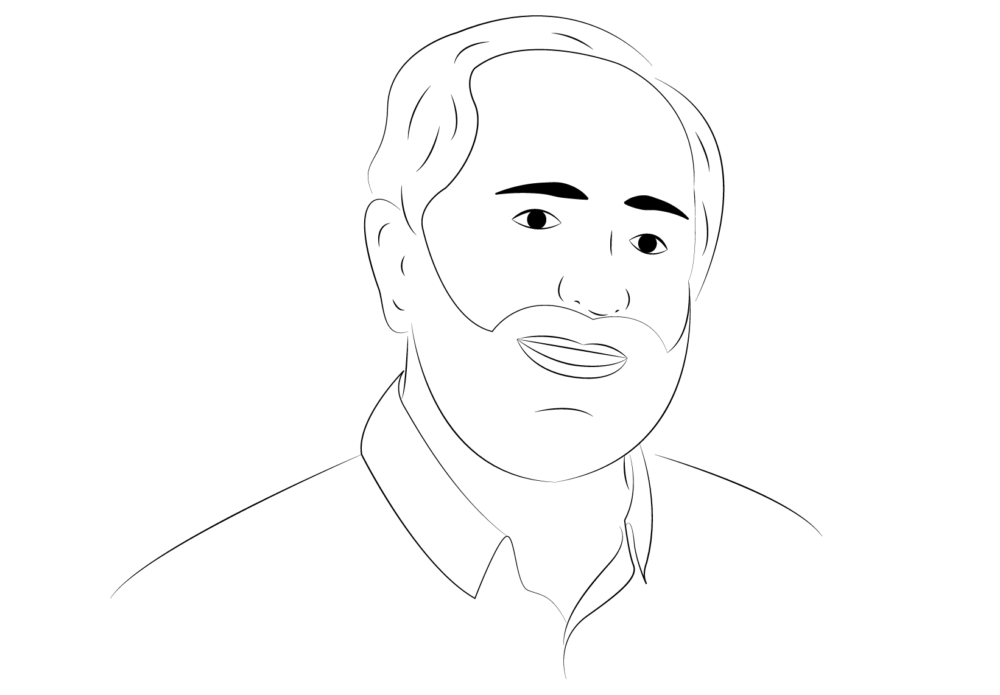It is said that only a human being is capable of communicating with another human being, although that is not always true. There are humans who do not wish to communicate, who are just interested in being heard.
It is said that human beings, unlike machines or artificial intelligence, can understand and feel emotions, although there seems to be a part of the human being that refuses to acknowledge that which causes him feelings of guilt.
It is said that only a pariah can recognize another pariah.
I was a pariah. Forty- five years ago, pushed by the stormy winds of the dictatorship in Chile, I became a pariah. I feared the borders and the border officials. A passport seemed an unattainable possession to me, as far from me as wealth from a metteur en scène or from a writer who does not make any concessions to what is called today light literature.
For years, like any good pariah, I took my family along from place to place feeling guilty. I made my little children cross new borders promising them a happy future, a future without fears, a place where they could walk with the feeling of belonging. And, every time I crossed a border, a shiver went up my back while I wondered if once again it would shut behind me forever.
I was a pariah for good reasons, I once said, and I regret saying it. My assertion implies that there are also bad reasons; that a good pariah flees a dictatorship, but a bad pariah flees hunger; that it is acceptable to flee torture, but not to flee domestic violence; that it is laudable if, while crossing a border, you look around and write a poem, but it is not if you shiver with fear and cold and hang your head in shame, ashamed of considering yourself a bad pariah.
When I look at the children clutching their mother’s skirts as they look at the bridge that marks the border of Rumichaca between Colombia and Ecuador, fearful, looking without understanding why other children can cross, let go of the skirts and play, I see myself. I feel myself a pariah.
Over centuries, water – that diamond-tipped drill – built the bridge that connected us to the steadfastness of the miner who dug holes in the highlands to harvest the fruit of the earth, and it pierced the rock, forming a natural bridge, a symbol of my continent, a stone shell whose heart had been removed. Huayna Capac crossed that bridge to conquer southern Colombia; we crossed it to conquer stages. But today, it cannot be crossed by the thousands of Venezuelans that flee their country, the pariahs crossing my continent forty-five years later to join me in singing.
I said I was a pariah, and I beg your pardon. I am a pariah because every time one of my people is detained at a border I am the one who is arrested, every time a child cries, it is my children who join them. I ask your forgiveness for calling myself a good pariah. There are no good or bad pariahs. We are all just the wretched of the Earth.
It is said that fire purifies or warms the soul, but there are fires like those in Dante’s Inferno that torment the heart when they raze a camp built of cans, cardboard, and hope in Pacaraima on the border between Venezuela and Brazil, and it hurts even more when it is the same dwellers of misery who burn the misery.
It is said that walls were built to protect men from the elements, but walls hurt men when they bear swastikas and slogans demanding the expulsion of the Nicaraguan refugee who flees an authoritarian regime and comes «to endanger the safety of women and property in Costa Rica.» Or when they are raised in the south of Mexico to block the migration of Guatemalans and Hondurans. Or in the north, to block further migration to the United States, where those families that do cross are separated and sent back as human merchandise with neither place nor value in a global market.
It is said that the sea nourishes, that the sea unites and caresses, but it is not said that the insatiable belly of the Mediterranean feeds itself day by day with the bodies of the pariahs who prefer to defy death than to suffer hunger or endure torture at the hands of their countrymen.
It is said that only a human being can see injustice, look away and sleep; that only a human being can close his ears to the march of the pariahs of the world. Perhaps it is because he fears that someday he or any of his children will have to join the march to walk the Earth in search of a place to dream.
I, a pariah, invite you to build a bridge of hope, and together with the pariahs of the world, to walk the Earth smiling again.


